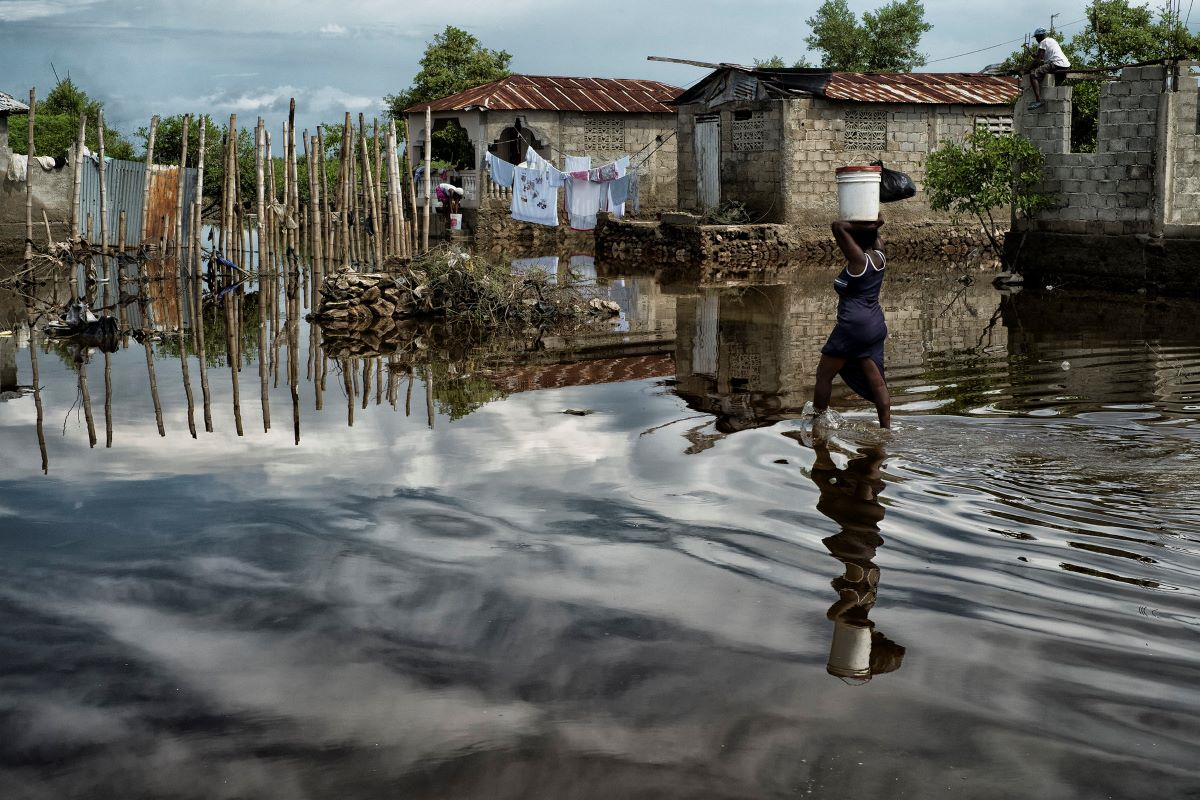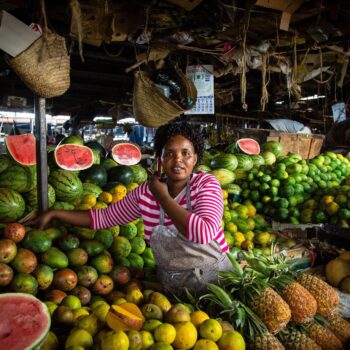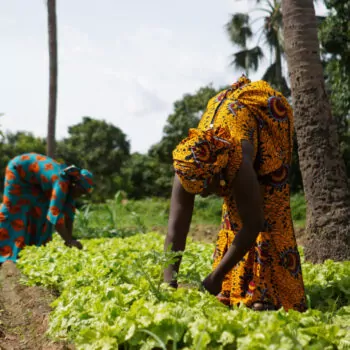Press release
- International climate change think tank E3G launched its latest report, Getting on the Path to $1.3 Trillion, at the State of Climate Politics Forum, E3G’s flagship event at London Climate Action Week.
- The report sets out how, even in today’s challenging political context and following recent cuts to development budgets, governments can take a number of actions now to get on a path to meeting the new global climate finance goal of mobilising $1.3 trillion per year in public and private climate finance into developing countries.
- The economic shift to a clean and resilient economy is already happening. The key challenge now is to reform systems and institutions far and fast enough to enable rapid scale-up of finance for clean growth and to avoid the destabilising impacts of climate change. The report sets out credible first steps on that journey as governments consider how to adapt to a changing world.
Story
Mobilising capital for investment in the climate transition, adaptation and resilience is more crucial than ever. E3G’s new report, Getting on the Path to $1.3 Trillion, shows a path forward as the need for climate finance intensifies and an already challenging outlook becomes more complex amid conflicts, aid cuts and political uncertainty.
Even in this current context, the report shows that there are a series of actions governments can take to get on the pathway to the goal agreed at COP29 in Baku to channel $1.3 trillion per year by 2035 to developing countries. The Brazilian COP30 Presidency will be looking to set out such a pathway through its ‘Baku to Belem Roadmap’, to be unveiled before COP30.
The report both sets out the building blocks for the long-term vision for reaching the 2035 goal, and provides recommendations for what can realistically be achieved in the next 1-2 years.
For each recommendation, the authors outline the broad building block on which action is needed and provide tangible, implementable measures. Together, these measures can accelerate progress in getting the financial system on the right course to achieve climate-safe economic prosperity by mid-century.
Highlights from the recommendations include:
- Freeing up fiscal space for climate investments in developing countries, e.g. by tackling debt-related barriers crippling developing country economies and protecting vulnerable countries from climate-related economic shocks;
- Implementing targeted regulatory reforms to mobilise private capital, e.g. by changing the way that central banks evaluate and respond to climate risk, which could drastically increase private finance and enable better growth without costing taxpayers;
- Ensuring remaining public finance goes further by creating a more effective delivery architecture for international finance, e.g. with donors reducing the impact of aid cuts by working in a much more co-ordinated way
- Increasing the scale of finance mobilised through public levers, e.g. by scaling up proven measures to mobilise private finance and increase the size of the multilateral development banks (MDBs), while public budgets are restored and new sources of finance like levies unlocked.
The report emphasises the importance of continued multilateral action and focusing on solutions that address the interconnected nature of the challenge. Its overall message is that despite challenging political conditions, rapid action to reform the financial system is necessary and a wide range of achievable first measures can be actioned now with political leadership and international partnership.
The report’s launch at the State of Climate Politics Forum provides a key opportunity to ensure collective action and climate leadership from the midpoint of 2025 through to Belém. These issues will also be discussed at London Climate Action Week events such as the Climate Resilience Finance Summit, organised by IIED, where speakers will include UK Foreign Secretary David Lammy and Barbados Prime Minister and debt sustainability campaigner Mia Mottley.
Quotes
Kate Levick, Associate Director, Finance and Resilience, E3G said:
“We can’t wait for the perfect political conditions to move towards the $1.3 trillion goal; we need to act now. E3G’s new report sets out achievable near-term steps towards the financial system transformation that is needed to achieve economic transition and resilience in developing countries.”
Rob Moore, Associate Director, Public Banks and Development, E3G said:
“The Baku to Belem Roadmap provides a unique opportunity to respond to a changing world and create a financial system that avoids climate impacts that threaten global stability and security. This shows that if governments work together there is a way to confront the challenge and get finance to flow to developing countries at the scale needed.”
“Recent cuts to aid budgets have been gut-wrenching for many in the Global South and short-sighted by those making them. But people want to see that public spending isn’t futile and is part of a broader plan to change the economy for the better at home and abroad. As governments scramble to respond to a changing context, this report provides blueprint for how realistic, known measures can add up to that transformation.”
– ENDS –
Available for comment
Rob Moore, E3G Associate Director, Public Banks and Development
m: +44 (0) 7860861226 rob.moore@e3g.org
Kate Levick, E3G Associate Director, Finance and Resilience
m: +44 (0) 7860861225 kate.levick@e3g.org
Salvatore Serravalle, E3G Programme Leader, Global Macro and Financial Resilience
m: +33 (0) 782142505 salvatore.serravalle@e3g.org
Notes to Editors
- During London Climate Action Week, E3G and Climate Policy Initiative (CPI) are launching two complementary reports on climate finance. CPI’s annual Global Landscape of Climate Finance provides a comprehensive analysis of climate finance flows and needs, while E3G’s Getting on the Path to $1.3 Trillion report highlights actionable measures that can be taken in the current financial and political context to reach the $1.3tn annual target in line with the Baku to Belém Roadmap. Together, these reports provide an assessment of where we currently are in climate finance and how we can move forward to achieve scale and impact.
- Also read E3G’s new briefing, Bridging the Finance Gap for Adaptation, which identifies areas for potential progress in closing the adaptation finance gap in this crucial COP30 year.
- The State of Climate Politics Forum is a platform for assessing dynamic geopolitical and political change and the progress and prospects for climate action. It invites leading voices and thinkers to engage in pivotal conversations on how to craft the politics and geopolitics necessary for climate safety at the midpoint of the critical decade for climate action.
- E3G is an independent climate change think tank with a global outlook. We work on the frontier of the climate landscape, tackling the barriers and advancing the solutions to a safe climate. Our goal is to translate climate politics, economics and policies into action. About – E3G
- For further enquiries email press@e3g.org or phone +44 (0)7783 787 863
Register for our journalist WhatsApp briefing service to receive updates and analysis for key geopolitical and climate event: E3G WhatsApp registration for journalists – E3G.


